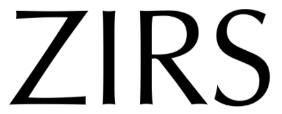
The coal phase-out scheduled for 2038 in Germany does not only mean major changes for the people in the coal-mining regions. The phasing out of coal-fired power generation is accompanied by an expansion of renewable energies, the energy transition (“Energiewende”). Wind energy and the wind farms that generate it are central pillars of this transformation and, as such, a visible sign of change for numerous communities and their citizens. Despite a generally high level of approval for the energy transition among the German population, new wind farm projects are repeatedly the starting point for civil protests. Why some projects are rejected but others are not has not yet been fully researched. The assumption that citizen participation is a way of increasing local acceptance is widespread. However, how such public participation should be organized is still being investigated. A key point here is that previous participation processes have primarily sought to collect and counteract counter-arguments. Participation is therefore always subject to a negative framing, which is also highly particular. Only individual negative aspects of the wind farm project are taken up and can therefore be dealt with. This interdisciplinary research project aims to address precisely this aspect and derive transferable options for future action for accelerating the energy transition (“Energiewende”).
To achieve this:
• Acceptance factors are collected and accompanying narratives are analyzed. In addition, location and structural criteria are translated into room backdrops and images in order to derive communicative starting points.
• The socio-economic effects of the energy transition in their respective areas are analyzed. This also includes
regional returns, financial participation opportunities and their relevance to acceptance.
• Approaches for the formative involvement of citizens in informal planning procedures are being developed and implemented. Accompanying the formal planning procedures, the aim is to make a significant contribution to planning security and accelerating through conflict framing and communicative action.
• The contribution of the dialogs and citizen concepts are evaluated. The extent to which positive narratives and perceptions, social norms, attitudes and the willingness to act have developed towards acceptance of the regional transformation will be investigated.
The ethnological sub-project of “PartEEnschaften” is titled “Affective Public : Narratives and Practices of the Energy Transition”.
Based on various ethnological approaches, the lack of consent of local groups of actors to wind energy projects can be explained by insufficient consideration of social and cultural contexts. Energy transition (“Energiewende”) and structural change (“Strukturwandel”) are not understood as merely technological, but as
a locally anchored social process that involves the redefinition of cultural values and social belonging.
In this context, the sub-project investigates how narratives about the energy transition are related to social norms. It also analyzes what role social and cultural conditions play in the perception and acceptance (or nonacceptance) of wind energy projects in regional contexts.
The aim of the sub-project is to investigate how dialogical participation processes alter existing narratives: Thus, to what extent the inclusion of local narratives into the planning cultures of the energy transition leads to an intensification of the local public, citizen participation and ultimately perhaps even acceptance.
